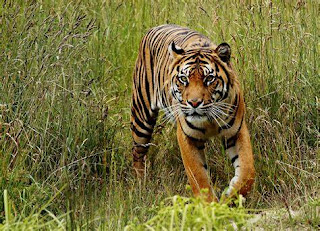Dear Kay,
Many thanks for the postcard, yes I am looking forward to seeing Exmouth again. Got to Port Stanley yesterday after being on the Canberra doing the POW run to Argy land. When they came on board first they smelt just like the school house at Cusichaca! Two weeks ago, as I’am sure you know already, we were hit as we waited to go ashore from the Sir Galahad. But being where I should be I escaped with a single hair and a large burn hole in my waterproof. Had I been where I should have been I wouldn’t be writing this. Thanks to your first aid lessons at least one soldier got away alive who wouldn’t have had I not known what I was doing - only two medics got out. The whole thing was a mess - a mess that got 25 of my mates killed. We were left in daylight for eight hours without air cover! There was hardly any warning just someone screaming Air Raid Warning Red! Air Raid - he never finished. A 500lb bomb came through the wall about 15ft away from me and carried on through two more walls and floors where it exploded. The guy stood behind me was killed. I didn’t have time to panic or be scared. Even after I got out I had to go back again to bring some others out the smoke was so thick you could walk on it.
Lucky every other man was carrying a 1 litre Hartmans Drip - these faded a lot of the guys with burns. later on today we’re going back to “Bluff Cove” by “chopper’ for a memorial service. Then the wreck of the ship will be towed out to sea and sunk as an official war grave.
I lost nearly all my kit - I got away in what I was wearing. The lads from 2 PARA who put us up for the night in their sleeping shed were fantastic. some of them stayed up all night making us tea. Next day we were “choppered” out to HMS Intrepid where we rested and issued with new kit.
Don’t know how long before we get home but in the meantime we are doing a northern Ireland type job in Stanley- patrolling- chatting up the locals - checking possible booby traps etc. Mines are still a big problem - they won’t let us use the Argies to find them! Looking after the POW’s was a bit like giving treatment to the people in Cusichaca who had stolen from us - crazy!
Still that’s life - that’s war, and I’ve had enough of this one for the moment. Not sure when I’ll be home - about six weeks they say - we’ll see. Hope to see you then.
Give my love to Exmouth.
Love and best wishes,
Andy
Footnote: L/Cpl Andy Mortimore REME and I were on an archaeological expedition in the Andes Peru 1981 thus his referral to Cusichaca, also one of the Argentina POW worked on the camp with us and Andy recognised him when he escorting the POW back. I had the pleasure of travelling on a return trip on the Sir Galahad in 1979 from Hong Kong to Brunei.













